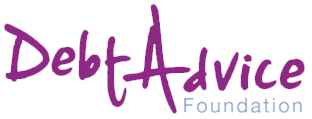What to do if you find yourself struggling with debt
The first thing you need to do is decide whether you have a debt problem or a money management problem.
What’s the difference?
Well, a debt problem is defined as a situation where you are unable to meet your monthly credit commitments as they fall due and at the same time maintain a reasonable standard of living (i.e. you cannot pay your creditors the contracted monthly amounts and have enough left over to cover essential living costs). A money management problem is where your income is sufficient to cover both your debt repayments and your essential living costs but you spend too much on non-essential items.
First you need to set out your monthly essential living costs (things like food, travel and rent – it’s a good idea to go through a recent bank statement to make sure you haven’t missed anything), your contracted monthly or minimum credit repayments and your monthly income (such as wages from full or part-time employment, student loan or grants).
By subtracting your essential living costs and monthly repayments from your income, you end up with how much you have available each month to spend on non-essential items or even better, how much you are able to save. There are many online budgeting tools that can help you to do this including the charity’s own free Budget Planner.
If the results are showing that you do have enough money left over at the end of each month to pay your creditors but you still feel that you struggle then you need to look at ways of increasing your surplus by controlling your non-essential spending.
What do I do if I don’t have enough left over to pay my creditors in full?
If you are unable to meet your credit commitments as they fall due then you are technically insolvent.
The first stage is to determine whether or not you are in full receipt of your income entitlements and whether you are spending excessively on non-essential items. If you are unable to bridge the gap having addressed both of these areas then the next step is to try to reduce your monthly creditor payments to a level that you can afford.
If you feel confident enough to negotiate an informal managed arrangement with your creditors yourself then you can use the charity’s free online debt analyser tool. The tool calculates how much you can realistically offer to each of your creditors by pro-rating the amount you have left over each month (after your priority debts and living costs have been taken into account) based on the value of each debt (for example, if you owed 50% of your total debt to Creditor A then 50% of your available monthly surplus would go to that creditor – this way your creditors can see you are being as fair as you can and are more likely to accept your offer). The tool also automatically produces a statement of affairs and creditor letters for you.
It’s also always a good idea to seek independent advice from a specialist debt advisor who can take you through all of the options that are available to you.
Finally, whichever route you decide to take, you should always continue to pay your priority debt arrears (rent/mortgage, Council Tax, court fines, utilities, TV license, CCJs) before your unsecured debts (credit cards, personal loans, overdraft, store cards, catalogue debts). This is because failure to maintain priority debt repayments has much more severe consequences (including fines, loss of property and even imprisonment) than failure to maintain unsecured debts repayments.




